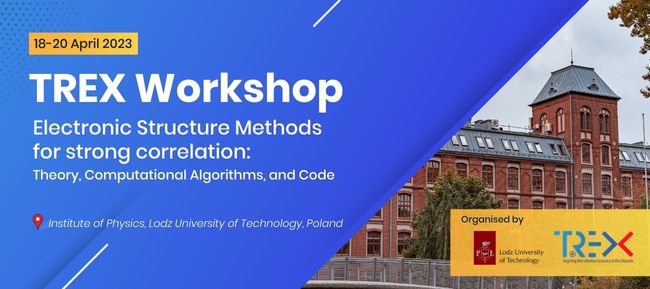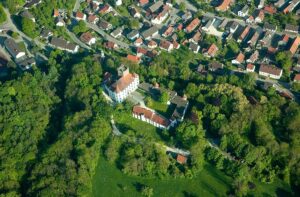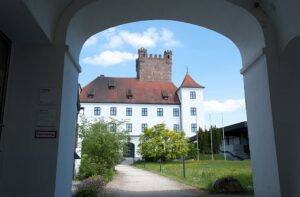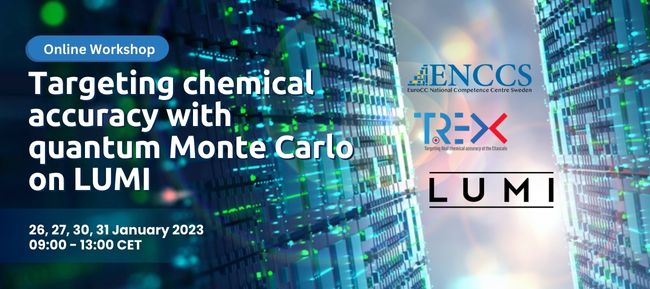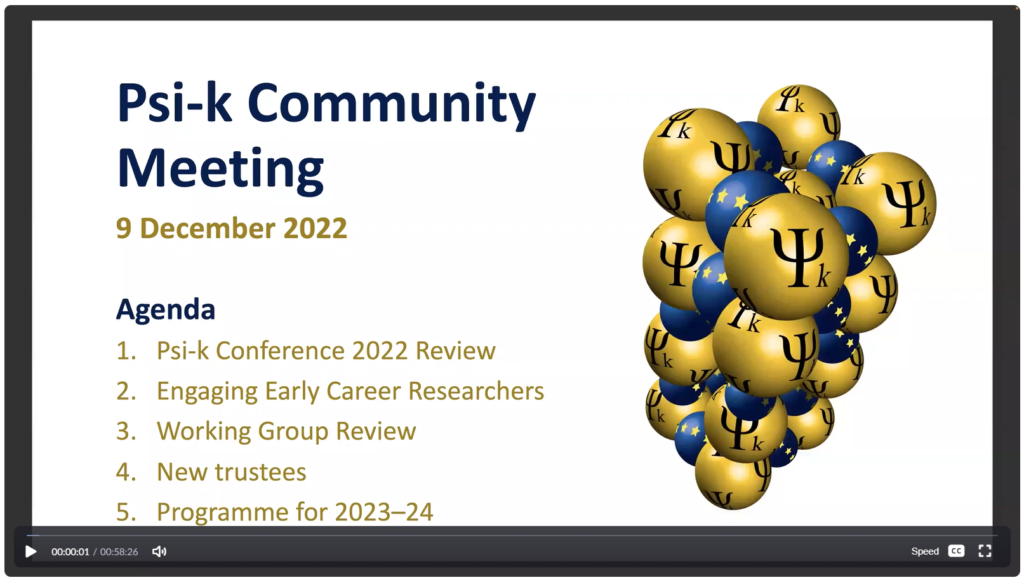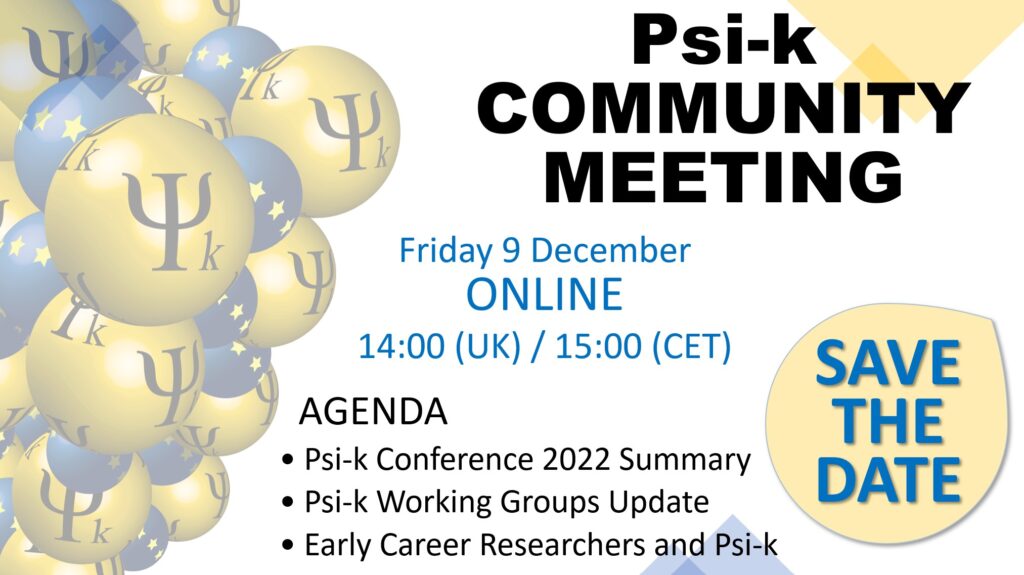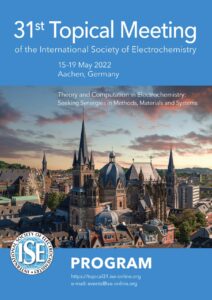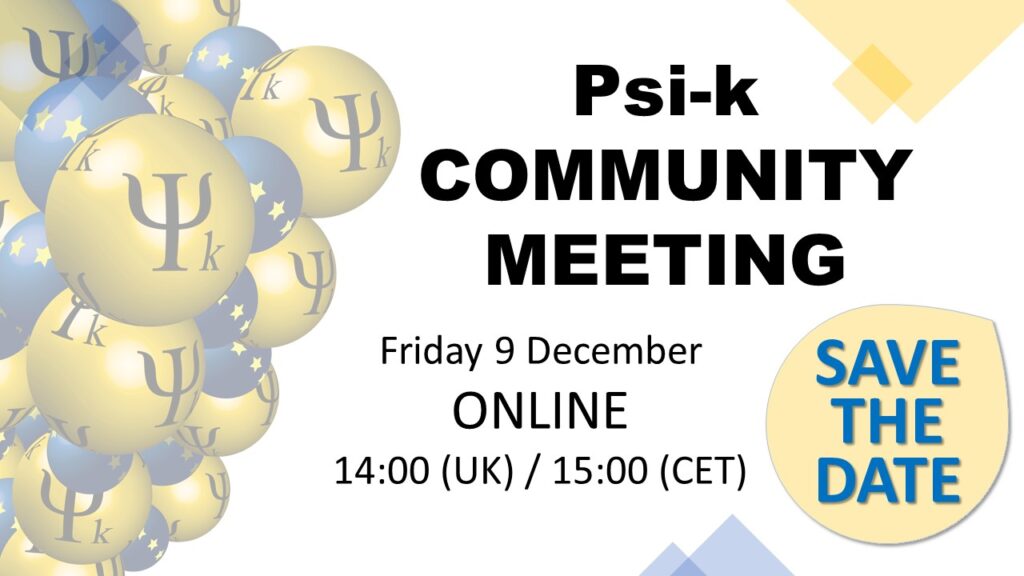Dear all
Our working groups are the heart of the Psi-k community, and the Board of Trustees wishes to express its thanks to the leaders and members of the current groups for serving us in these roles.
Following on from the presentation and discussion at the Annual Community Meeting in December, the Board of Trustees has now approved the titles and scopes of the new working groups. These can be found on the Psi-k web site.
We now need to select members and a leader for each working group in time for them to participate in the review of outline workshop proposals in July. Their roles and responsibilities are also detailed on the web page above. Other key tasks for these new groups will be to assist in the planning of the scientific programme for the next Psi-k Conference in 2025 and the shortlisting of nominations for Psi-k awards.
Psi-k is committed to promoting equality, diversity and inclusion at all levels, paying particular attention to:
- gender balance;
- spread across career stages;
- geographical representation.
In particular, it has been agreed that each working group will include one member who is an early career researcher* and one member from outside Europe.
The current working groups were established in 2018 with the expectation that they would be refreshed at the following Conference. The expectation now is that leaders who have served for five years will normally stand down from this role, but that they may be nominated to stay on as members to provide continuity. Current members who have been particularly active may also be nominated to continue. It is anticipated that around half of the membership of the new working groups will be taking on this role for the first time.
Individuals may self-nominate, but the Board of Trustees is particularly keen to seek nominations of individuals who may be reluctant to put themselves forward, especially those working in eastern Europe or from under-represented groups within our community. We urge senior members of the Psi-k community to consider carefully whom they might nominate.
Nominations should be submitted via this Google form. There is no formal deadline, with nominations being considered as they are received, but the trustees will begin inviting new members from the middle of April. You are welcome to submit more than one nomination.
Best wishes,
Peter Haynes
Psi-k Chair of Trustees
*An early career researcher is someone holding a PhD but who does not yet hold a permanent position within a university, research institute or company.


